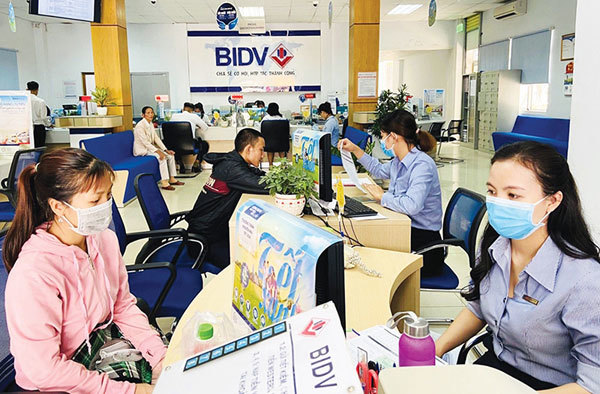Now, banks from all 15 member countries spanning the Asia-Pacific region are demonstrating their dedication to bolstering post-pandemic economic growth.
 |
| Regional lenders are preparing themselves for the opportunities coming with the newly-signed RCEP |
The newly-inked Regional Comprehensive Economic Partnership (RCEP) agreement is expected to provide an impetus for other multilateral deals for its members, with a number of financial institutions leaving the door open for their plans to ensuring sustainable financing.
On November 14, government-sponsored development banks from Japan, China, and South Korea expressed their optimism through an agreement signed during the virtual ASEAN+3 Summit, which aims to revive the vulnerable Southeast Asian economy and speed up regional infrastructure projects.
The Japan Bank for International Cooperation (JBIC), the China Development Bank, and the Korea Development Bank emphasised their commitment to strengthen ties with their ASEAN peers in a bid to stabilise the financial system and improve liquidity in global markets.
A representative from JBIC highlighted that many Japanese corporations are forging partnerships with ASEAN firms in an attempt to diversify their business operation. The lender also said that as many Japanese companies have entered the rapidly-growing market, they are looking to help revive economic activity in the ASEAN region through interbank cooperation.
Other lenders participating in the agreement include PT Bank Mandiri (Persero) Tbk. of Indonesia, DBS Bank Ltd. of Singapore, Kasikornbank Public Co. of Thailand, CIMB Group Sdn Bhd of Malaysia, BDO Unibank Inc. of the Philippines, Lao Development Bank, and Vietnam’s own BIDV.
The 15 countries – which includes China, Japan, South Korea, Australia, New Zealand, and the 10 members of ASEAN – signed the RCEP agreement on November 15. Touted as the world’s largest free trade deal ever signed in terms of GDP, the RCEP will have a significant impact on 29.7 per cent of the world’s population accounting for 28.9 per cent of the global GDP and $26.2 trillion in global output. The timing of this pact could never have been better as the world begins its recovery from the COVID-19 pandemic with encouraging reports on successful vaccines clinical trials from leading pharmaceutical institutions.
Economic openness
Hirai Shinji, chief representative of the Japan Trade Promotion Organization in Ho Chi Minh City, told VIR that Japanese companies are among many more from Japan that are pursuing a “Vietnam+1” approach to expand their production here, prompting local suppliers to step up the game to meet their requirements. Many other major Japanese investors are also planning to shift their manufacturing operations to Vietnam.
According to Nikkei Asian Review, the RCEP marks the first time that China has entered a non-bilateral free trade agreement of this scale. Coming at a time when the US has been less enthusiastic about joining global trade deals, and as talks on a post-Brexit trade deal between the European Union and the UK stall, Asia looks to take the lead in shaping the new global trade architecture.
For China and Japan, Asia’s largest and second-largest economies, the RCEP is the first free trade agreement to connect them.
“The RCEP’s important role will be further highlighted to help drive the economic recovery after the COVID-19 pandemic. The deal will boost regional supply chains and help Vietnam and ASEAN economies thrive. Intra-Asian trade, which is already larger than Asia’s trade with North America and Europe combined, will continue to power global economic growth and move the economic centre of gravity towards Asia,” said Tim Evans, CEO of HSBC Vietnam.
“We can see the prominence of Vietnam as the current chair of ASEAN this year, through the decision to take an unconventional approach in pushing the deal to be signed. With the substantial benefits that are expected to be gained, RCEP is one of the most important priorities in Vietnam’s trade integration strategies,” Evans added.
Vietnam has been a strong advocate of economic openness and has already signed 14 multi- and bilateral trade agreements, the most recent being the EU-Vietnam Free Trade Agreement.
The RCEP meanwhile is expected to help provide additional impetus for Vietnamese companies to expand into new export markets, take a greater part in regional supply chains, and ultimately attract more foreign investment.
New initiatives
Moreover, local enterprises are looking forward to the agreement taking effect to reduce tariffs together with customs simplification, as well as expanding their market of exports.
On the other hand, the COVID-19 pandemic is likely to spur banks across Southeast Asia to accelerate their digital transformation strategies, with laggards likely to suffer swifter franchise deterioration as customer preferences and competition evolves more rapidly.
Global financial analysts Fitch Ratings believes that the significantly higher adoption rate of digital banking in Southeast Asia is likely to help more of the well-established, digitally advanced banks to widen their competitive advantage further against the less agile players, as well as the incoming digital-only banks, in the medium term.
In Vietnam, lenders are also actively boosting their digitally-led transformation to enhance the customer experience. For instance, privately-held lender HDBank officially launched its online identifiers from the beginning of August. After one month of e-Know-Your-Customer (eKYC) implementation, HDBank has garnered over 35,000 new customers registering for iMoney and 15,000 verified accounts.
“We have started digital initiatives in two countries, the Philippines and Vietnam, where we launched our complete mobile-banking services and we’re seeing the results. It is something that we’ll see moving faster than people think, because if you look at the adoption of technology by customers when it comes to banking, it is very, very fast,” said Tengku Zafrul Aziz, CEO and executive director of CIMB Group Holdings – a leading Malaysian financial group.
On the other hand, given that the global economy is significantly affected by climate change and environmental degradation, there has been an increasing emphasis on green and sustainable financing among the RCEP’s financial institutions.
Last week, South Korea-headquartered Shinhan Financial Group, which is also expanding its business to Vietnam, announced its ambition to go carbon-neutral by 2050, the first such move by a financial services firm in Southeast Asia. Shinhan will reorient investment and lending rules from carbon-heavy firms and industries to ones whose business models are environmentally-conscious and therefore sustainable.
Furthermore, other banks in RCEP countries such as Sumitomo Mitsui Financial Group, Mizuho, and Mitsubishi UFJ Financial Group have previously confirmed they would stop financing new power projects involved in fossil fuels. VIR
|
HARRY LOH - CEO, UOB Vietnam The timing of this pact could not have been better as the world is beginning to see the green shoots of recovery from the COVID-19 pandemic with encouraging reports on successful vaccine clinical trials from leading pharmaceutical institutions. Among the key benefits of the RCEP are tariff eliminations of 92 per cent of goods and services, providing more preferential trade access, and promoting investment among the participating countries. There will also be simplified customs procedures and improved trade facilitation, reducing both transaction costs and time. Though Vietnamese businesses are expected to face stiffer competition both domestically and for export markets, once the RCEP takes effect, we expect the benefits to outweigh the concerns. As Vietnam progresses to become a high-tech manufacturer under its push for Industry 4.0, the RCEP will help local firms increase exports and attract high-quality goods for its consumers. Furthermore, demands for Vietnamese exports like footwear, garments, agriculture, aquaculture, and electronic products are expected to benefit as Vietnam would have easier access to consumer markets larger than the size of those included in other free trade deals. The increase in exports will help to create more jobs and drive economic growth in Vietnam. Moreover, the simplification of procedures such as customs and rules of origin will help to reduce bureaucracies, thus allowing more small- and medium-sized enterprises (SMEs) to participate more easily in cross border trading activities. With the SME segment accounting for more than 95 per cent of all enterprises in Vietnam and contributing to more than 40 per cent of the country’s GDP, the partnership will create invaluable opportunities for these domestic businesses to move up the value chain.
|
Celine Luu

Experts upbeat about VN’s post-pandemic economic recovery, urging firms to focus on new trends
Experts are upbeat about Vietnam’s post-pandemic economy, urging enterprises to grasp opportunities arising from new trends, such as digital transformation, energy infrastructure development

Vietnam urged to move up global value chains post-pandemic
Vietnam needs to diversify global supply chains in order to achieve inclusive growth and attract investment after the pandemic ends, speakers said yesterday (Nov 18) at a meeting in HCM City.